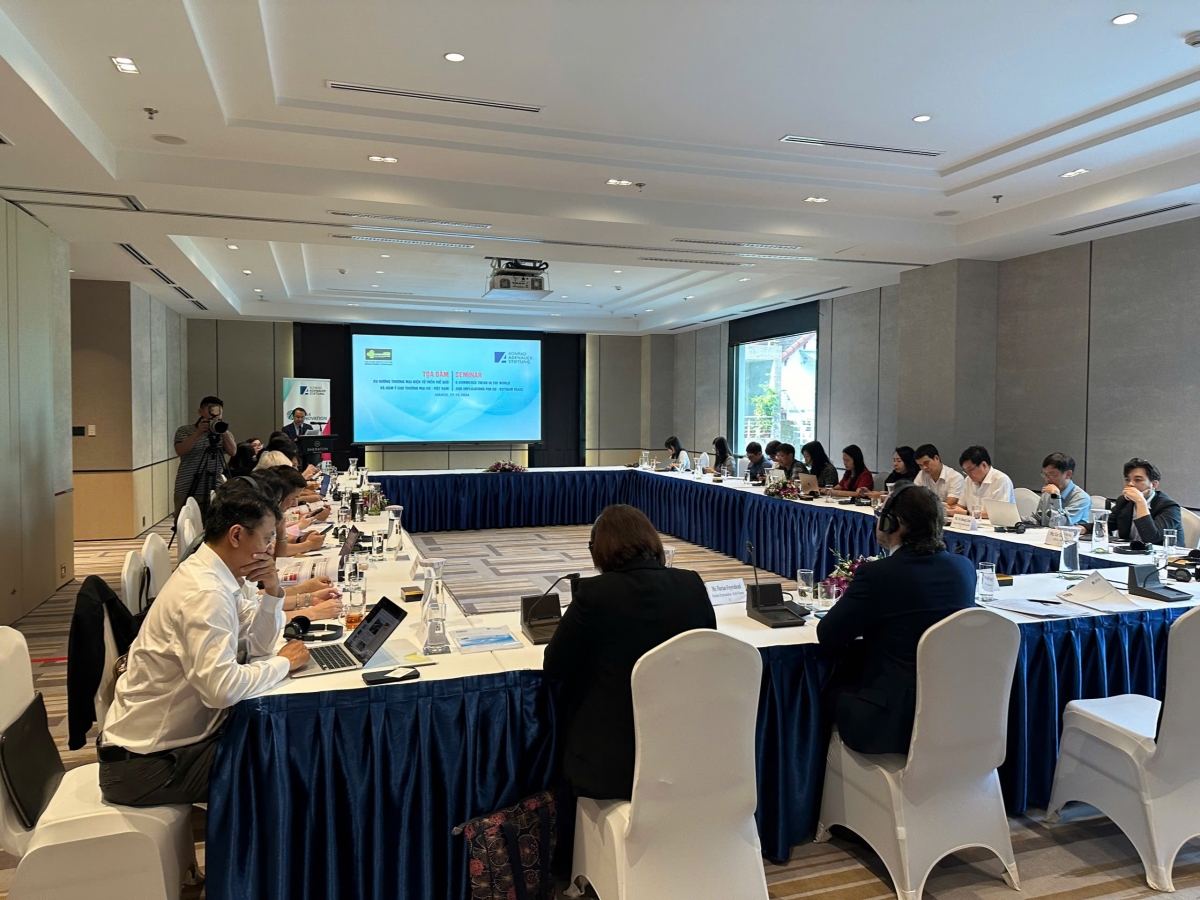Seminar seeks to expand exports via international e-commerce platforms
Society – Economy - Ngày đăng : 18:48, 17/10/2024

The event was co-hosted by the Vietnam Institute for Development Strategies (VIDS) and the Konrad Adenauer-Stiftung Vietnam (KAS).
As part of his opening speech, Nguyen Quoc Anh, VIDS Vice President, emphasised that the EU and Vietnam have made significant strides in promoting bilateral trade through the EU-Vietnam Trade Agreement (EVFTA), noting that e-commerce serves as a powerful tool in which to leverage this agreement, fostering increased trade and mutual benefits.
This research is expected to contribute to the shared goal of enhancing Vietnam-EU trade whilst advancing the digitalisation of the Vietnamese economy moving forward, he noted.
According to insiders, cross-border e-commerce has become the golden key for Vietnamese exports, accounting for 37% of total e-commerce revenue and achieving a growth rate of more than 45% in 2022 and 26% last year.
In particular, the number of exported products on Amazon skyrocketed by more than 300% throughout the 2019 to 2023 period, while the number of enterprises also increased by 40%.
Vietnamese dealers have recorded impressive growth on Amazon, with nearly 17 million Made-in-Vietnam items sold to Amazon customers within 12 months up to September, 2023.
However, the number of enterprises exporting to the European market via e-commerce platforms remains lower compared to others. For instance, among more than 10,000 Vietnamese enterprises exporting via e-commerce on the Amazon platform, only about 10% have made inroads into the European market.
Think tanks have pointed out that the EU market has set forth a range of stringent requirements with numerous certificates, especially related to sustainable development and social responsibility such as REACH certificate for wood furniture and handicrafts products and forest management certification through the Forest Stewardship Council (FSC), as well as common standards of materials for the garment and textile industry, including GRS (Global Recycled Standard), RDS (Responsible Down Standard), and RWS (Responsible Wool Standard).
Meanwhile, Sita Zimpel, Project Director at the ASEAN Regional Economic Integration (REI), said that Vietnamese businesses wishing to enter the EU e-commerce market need to observe the strict compliance requirements, particularly the emerging imperative of ethical business conduct.
To support businesses to gain access to the European market, experts underlined the need to build Vietnam-EU e-commerce platforms in a bid to provide assistance in registering the Import One Stop Shop (IOSS), obtaining a number of certificates and consulting legal regulations on e-commerce.
They also put forth several recommendations for industries with export advantages to the EU market by deploying support programmes on e-commerce for furniture and handicraft enterprises, accelerating e-commerce in craft villages while helping furniture enterprises to meet stringent requirements related to sustainable forest management certification (FSC).
Insiders also underscored the importance of developing the supply chain for the Vietnamese textile and garment industry, with a specific focus on raw material supply sources and training a workforce that is fully equipped with knowledge of marketing and product design to meet Original Design Manufacturer (ODM) production methods.
